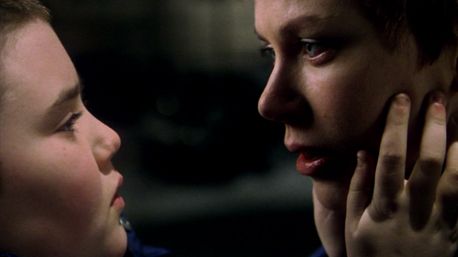
As the busiest UK script consultant and script writer for hire in the business I’m a big fan of director Jonathon Glazer. ‘Sexy Beast’ is a great fun movie, and ‘Under the Skin’ is a masterpiece I think. Birth (2004) falls somewhere in between and maybe down the cracks as well.
Great directors have particular traits, and techniques they use. Kubrick didn’t explain, and went looking for startling imagery, he made us route for characters we didn’t like. Paul Thomas Anderson does the same from time to time, in this film; Glazer is doing something quite similar and using the same tools.
Birth is about reincarnation in a way. Nicole Kidman’s husband dies in the opening scene, and a child is born as he passes. 10 years later – the 10 year boy appears to Kidman, claiming that he is ‘Shaun’ her dead husband. Fobbed off at first, it becomes clear that ‘Shaun’ does know a lot about Kidman, and the family, and slowly, Kidman’s character becomes obsessed and believes her husband has returned.
The atmosphere is intense, the film on first viewing is fascinating, the little boy playing ‘Shaun’ is good, and Danny Huston has a great turn as Kidman’s new fiancé. Arliss Howard has a great scene or too, questioning the child, and finding his answers uncomfortable and inexplicable.
But, there’s a tool box that Glazer is using. A toolbox that Kubrick, Tarkovsky (sometimes), and even Paul Thomas Anderson (There will be Blood, Phantom Thread, The Master) also carries. The toolbox contains long tracking shots, slow zooms into close-ups, a powerful score, extreme close ups of characters in extremis. Scenes that become awkward and outstay their welcome.
The directorial tools are all well used, and not all directors (or actors) can pull this kind of intensity off, but, it feels affected… Its carrying weight, but how much of the weight is actually dramatic? The film is doom laden and treats the story, and the boy, and the wife, with massive seriousness, huge significance. Life and death is serious, the ‘supernatural’ is important but… (Ghostbusters has a lot more laughs)
You could take the same basic concept, and have tremendous fun with it, and make all the same points (and maybe more). Indeed, what made Kubrick a cut above Glazer, Anderson and others, is that Stanley made great films, on deep subjects, but he could see the absurdity too, the comedy, the fucking laughs…. And this premise could be treated as a rip roaring comedy (think of Allen’s section of ‘New York Stories’ or ‘Crimes and Misdemeanours’, also by Allen, serious but funny). Glazer has made a very serious, intense, cinematic film – but can’t everything be improved with a few laughs? This is how we cope with life isn’t it?
The film looks great, has some brilliant sequences on New York streets, and I think it was the last film that Garret Brown worked on (the inventor of the Steadicam). The performances are very good, and overall it’s a very well done film. But, I’d like to know what Allen, Preston Sturges or the Kubrick who made ‘Dr Strangelove’ would make of the premise, and I’d like Glazer who is a brilliant filmmaker, to stop using the same tools on every story. It’s a harsh critique, but not everything has to have some much weight and importance and intensity attached to it – small stories are sometimes too brittle or too easily overwhelmed. So find other ways to get insights. Other tools. Directors don’t and shouldn’t bring out the big guns all the time. Like hitting a tiny pin with a sledge hammer.
Matthew Cooper has been a script writer for hire, UK Script editor and UK script consultant for over 20 years. He’s written for most of the UK soaps, including writing award winning episodes of Emmerdale, EastEnders, Hollyoaks and Family Affairs and has been BAFTA shortlisted and Royal Television Society nominated as a script writer. His UK script coverage service and script development service are highly sought after.
You can find some of his broadcast credits on the IMDb.His directorial debut, the rubber reality horror thriller Markham will be released in 2020. You can find out more about Matthew’s work as a director here.
You can get in touch with Matthew on matcoop23@yahoo.co.uk.
